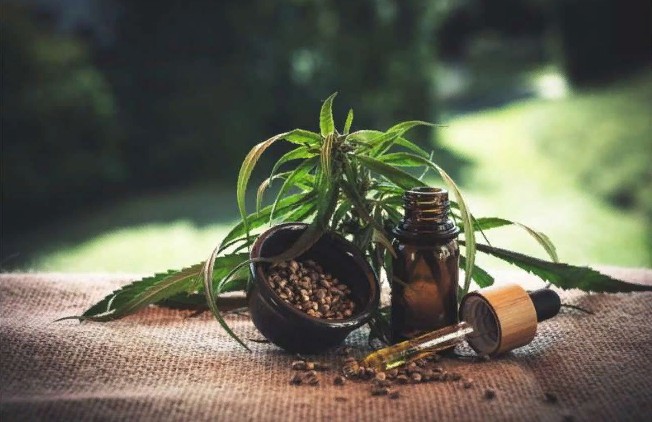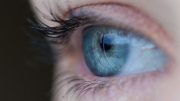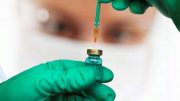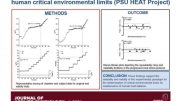Only 15% of CBD-infused oil, beverages, and other goods are accurately labeled, according to a student-led study.
Epidiolex, the first prescription drug produced from cannabis sativa, was approved by the US Food and Drug Administration in 2018.
Epidiolex is a purified formulation of cannabidiol (CBD) used to treat seizures. It has been shown to reduce the frequency of seizures in some children with catastrophic epilepsy syndromes like Lennox Gastaut syndrome, Dravet syndrome, and tuberous sclerosis complex.
Can a chocolate bar with CBD on the label be effective for individuals who can’t afford a prescription or who wish to supplement an existing antiseizure therapy? Not probable, according to a group of experts from the University of Wisconsin–Madison School of Pharmacy.
According to a study by fourth-year PharmD student Owen Miller, who looked at 39 CBD products from retailers in Southwest Wisconsin, the majority of these products are incorrectly labeled and may contain quantifiable amounts of THC, which can make it hard to know how much to take.
“Some of the companies had what they claimed to have, but a lot of them were either over-or very substantially under-representing the ingredients of their product,” says Barry Gidal, a senior author on the paper and a professor in the school’s Pharmacy Practice Division.
For their study, which was published in Epilepsy and Behavior, HPLC, or high performance liquid chromatography, was used to evaluate the contents of 39 CBD-infused beverages, oils, and other miscellaneous goods, including chocolate bars, honey, coconut oil, transdermal patches, and more. Although not all products have CBD concentrations listed on the label, only six (15.4 percent) do.
“Unlike regular prescription drugs, nobody is in charge of this,” Gidal argues. “It’s slipped through a slew of regulatory gaps.”
Labeling that isn’t accurate
Since the passing of the 2018 Farm Bill, which exempts hemp-derived products like CBD from the Controlled Substances Act, more non-prescription goods with CBD on the label have begun to appear on store shelves. However, the US Food and Drug Administration hasn’t given federal guidance on how CBD should be sold and labeled. A new study from the University of Wisconsin–Madison School of Pharmacy shows the consequences of this lack of federal guidance.
According to the US Pharmacopeia (USP) requirements for other drug goods, beverages were the least likely to be appropriately labeled of all the product categories studied by the research team. Unfortunately, there is no USP guideline for CBD at this time.
Only one of the 21 beverages—coffee, seltzer, kombucha, water, tea, and even beer—was correctly labeled. Seventy-eight percent of the CBD products tested were over-labeled, implying they contained less than 90 percent of the CBD intended.Furthermore, 7% of the products were mislabeled, containing 110 percent or more CBD than the label stated.
“Cannabinoids are lipid-soluble, so they don’t dissolve in water,” Gidal explains. “I understood there was probably nothing in CBD beverages when I started seeing them, but the items are still being sold at a premium.”
Approximately one-third of the 11 oils tested were properly labeled, while the remaining one-third were under-labeled, with one product containing approximately 130 percent of what its label promised.The majority of miscellaneous products (67 percent) were over-labeled.
And, more crucially, many of these items contained detectable quantities of tetrahydrocannabinol (THC), the psychoactive ingredient in marijuana. THC was discovered in 24% of beverages, 55% of oils, and 71% of other items.
Labeling inaccuracies, particularly in the case of THC, could have unintended effects on the central nervous system and generate problems for people who are exposed to drug testing.
This mismatch in labeling and unpredictability in content has happened in a lot of different fields of pharmacy, says Ed Elder, director of the school’s Zeeh Pharmaceutical Experiment Station, a collaborator on the project.
“A genuine clinical requirement”
Gidal has been involved in Epidiolex research for a long time. At the William S. Middleton Memorial Veterans Hospital in Madison, Wis., he helped study the drug’s pharmacokinetics, and he supervises his patients’ use of it in his clinical practice there, as well.
“I and my colleagues around the country started to see our patients buying CBD products and taking them at whatever doses were listed on the product or recommended by the store,” Gidal adds. Patients were often hesitant to admit that they were utilizing these products at all.
Patients were spending hundreds of dollars every month on them, so he thought it was time to find out what they were paying for.
“We wanted to undertake a study here to look at locally derived CBD products to see whether they matched up with what we’ve heard about,” Gidal explains. “This research began with a genuine clinical need to know what the products are and aren’t.”
Miller took on the project in 2018 after meeting Gidal in his first year of pharmacy school and collaborating with Elder and Karen Jones, the lab manager at Zeeh Station.
Miller says, “There couldn’t have been a better lab to do the analysis in.” Elder is on one of the USP’s expert committees, and the Zeeh Station focuses on a lot of drug research, including making drugs that stay stable in the form they’re in.
Ed and Karen have been wonderful research collaborators. We are extremely fortunate to have the Zeeh station as a resource at our school, “Gidal explains.
“We’re on campus to fill unmet research needs and provide expertise in everything connected to pharmaceutical development, including analytical capabilities and ensuring that analytical procedures are properly verified,” Elder adds. PharmD students like Miller are welcome to come in and use the facility as part of their goal.
Miller explains, “I was allowed to grow this project and had a lot of discretion and freedom; it grew as much as I would take on.” Miller, for example, was the one who suggested including beverages in the analysis.
He did a lot of research as part of the PharmD Path of Distinction in Research at the School of Pharmacy. He took independent study courses with Gidal.
Miller adds that “the Path of Distinction’s responsibilities, such as submitting manuscripts to journals and attending meetings,” felt like a really natural complement to what she was already doing. In a variety of ways, including scholarships and course credit, the school has been very supportive of this research.
Last year, Miller presented this cannabinoid research as part of the School of Pharmacy’s PharmD and PharmTox Research Symposium.
What does the future hold for CBD research?
Despite the fact that Miller will graduate in May 2022, he and Gidal both intend to continue to improve practitioners’ understanding of CBD. Miller is going to do a fellowship in clinical neurology at the University of Colorado Denver after he finishes school. He will focus on teaching and clinical trials in the field of cannabis therapies for pain and muscular movement problems.
There are going to be future studies on CBD’s stability that he’s going to help Gidal at the School of Pharmacy figure out how to do them.
“Once CBD solutions are exposed to air and light, they begin to break down quickly, posing a concern concerning product stability,” Gidal explains. The study will look at how long a bottle of CBD stays potent after it’s been opened, with the help of another PharmD student who will help with the study.
At present, the prescription medicine Epidiolex has a relatively short shelf life, Gidal explains. “Once it’s open, it’ll only be a matter of weeks before it has to be thrown out.”
Miller and Gidal have also looked through patient records for a clinical study of possible CBD medicine interactions, which includes input from hospital patients. They will soon share their findings with the public.
As CBD’s position on the market develops, especially as it continues to occupy this unregulated space, Gidal says, “pharmacists and all practitioners need to understand these fundamental points concerning dose, stability, and drug interactions.”





